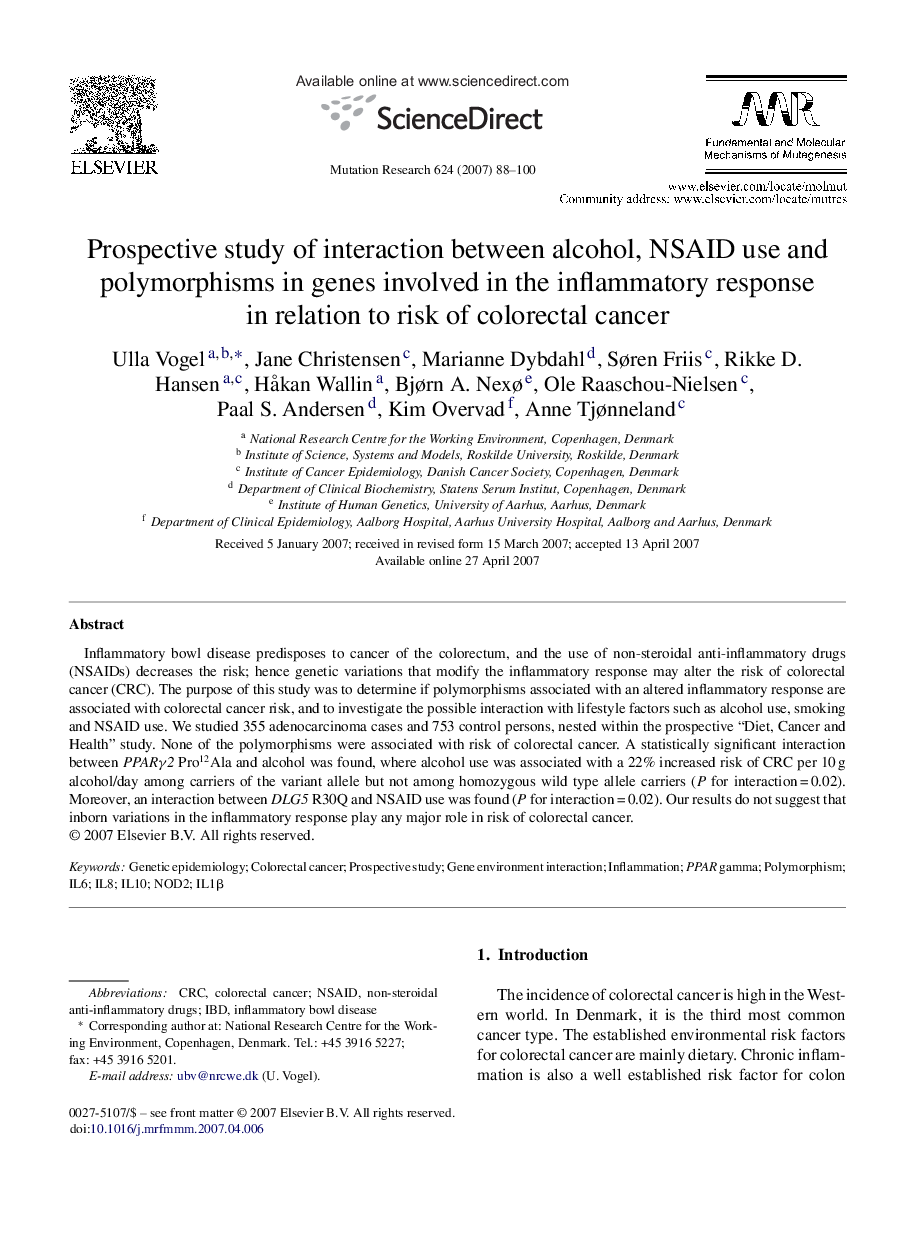| Article ID | Journal | Published Year | Pages | File Type |
|---|---|---|---|---|
| 2147325 | Mutation Research/Fundamental and Molecular Mechanisms of Mutagenesis | 2007 | 13 Pages |
Inflammatory bowl disease predisposes to cancer of the colorectum, and the use of non-steroidal anti-inflammatory drugs (NSAIDs) decreases the risk; hence genetic variations that modify the inflammatory response may alter the risk of colorectal cancer (CRC). The purpose of this study was to determine if polymorphisms associated with an altered inflammatory response are associated with colorectal cancer risk, and to investigate the possible interaction with lifestyle factors such as alcohol use, smoking and NSAID use. We studied 355 adenocarcinoma cases and 753 control persons, nested within the prospective “Diet, Cancer and Health” study. None of the polymorphisms were associated with risk of colorectal cancer. A statistically significant interaction between PPARγ2 Pro12Ala and alcohol was found, where alcohol use was associated with a 22% increased risk of CRC per 10 g alcohol/day among carriers of the variant allele but not among homozygous wild type allele carriers (P for interaction = 0.02). Moreover, an interaction between DLG5 R30Q and NSAID use was found (P for interaction = 0.02). Our results do not suggest that inborn variations in the inflammatory response play any major role in risk of colorectal cancer.
